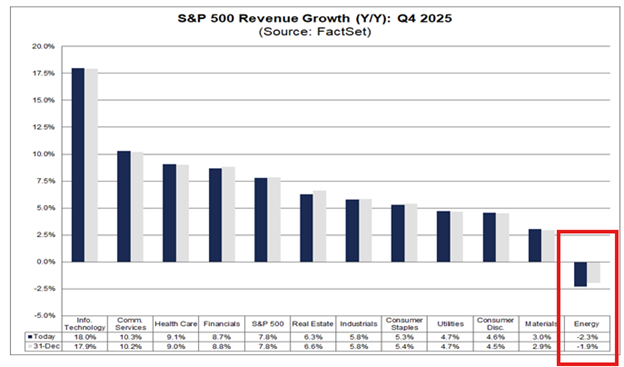Richard Duncan recently appeared on the podcast Wealth Formula to discuss the Austrian school of economics. Despite being only 42 minutes long, the episode is packed full of errors and fallacies.
What makes the discussion relevant for Austro-libertarians is not that these two non-Austrians know nothing about Austrian economics, but that their uninformed critiques are characteristic of the kind of simplistic descriptions of Austrian thought that we can expect to encounter in the future, as similarly un- and misinformed individuals on the right distance themselves from us in an attempt to attract new adherents as the Zeitgeist shifts to the right.
Duncan argues along the following lines:
1) Austrians proceed from the premise that gold is money and that credit expansion thus cannot continue indefinitely.
2) Austrians believe that credit growth leads to economic bubbles that always pop: More credit means more consumer spending and more investment, leading to a growth in prosperity, but when the credit growth stops, as it must under a gold standard, the bubble pops, and the process reverses as consumer spending, investment, employment, and prosperity shrink.
3) However, gold stopped being money in 1968 and, since then, capitalism has turned into “creditism,” changing the way our economic system works: The explosion of credit that has taken place has made the US and global economies much larger than they could otherwise have grown.
4) Austrians recommend letting this bubble pop: “[Austrians tell us] that we have sinned by no longer backing money with gold and that, therefore, we must suffer damnation because of all our egregious sins.”
5) However, Austrians fail to appreciate that the current bubble is so enormous that if it popped, civilization would collapse:
5a) If the US adopted a gold or Bitcoin standard and were unable to print dollars, it would soon run out of money because of its large trade deficit.
5b) Consequently, the economies of all the countries that prosper on the back of their large trade surpluses with the US (chiefly China) would also collapse, and they would buy far fewer US goods, causing the US economy to collapse as well.
5c) This would lead to an implosion of the entire global economy.
6) Luckily, there is no reason for us to allow the bubble to pop because we have the means to keep it inflated and growing indefinitely, as gold is no longer money.
7) Therefore, Austrians are unfairly critical of the global dollar credit standard, which provides the liquidity responsible for the growth of the last 60 years and raising billions out of poverty.
What is significant for Austrians is not that these absurd points belie a complete lack of familiarity with correct economic thinking, but rather that a correct refutation of them would fly over the heads of laymen to whom these points appear convincing. Thus, with regard to the public arena, it would not be a winning strategy is not to refute directly all the incorrect sub-claims, but rather to focus on the core misconception at the heart of each point and highlighting in an intuitive way that it cannot be correct as stated. The following constitutes some examples of how to do so:
1) Credit cannot expand indefinitely because it eventually leads to hyperinflation and a cessation of the use of money: An increase in credit does not increase the real goods and services available, merely the amount of money that can be bid for them. As prices rise, the monetary unit loses purchasing power, incentivizing individuals to reduce their cash balances and accelerate their purchasing behavior. This culminates in no one’s wanting to trade anything for increasingly worthless money and the return to barter.
2) Credits that result from voluntary saving do not have this effect because the increased claims on production made by the borrowers are counterbalanced by the reduced claims thereupon made by the lenders. Regardless of whether money takes on the form of gold, fiat currency, or anything else, credit expansion not backed by real saving induces an artificial boom that is followed by a corrective bust, as described in the Austrian Business Cycle Theory. However, without credit expansion, economic growth is organic, endogenous, and sustainable.
3) The explosion of credit that has taken place since 1968 has not made the US and world economies much larger than they otherwise could have been in a positive sense. On the one hand, to the extent that those economies have grown due to increased trade, the availability of new technologies and production techniques, and the absence of large-scale warfare. The growth is independent of inflationary credit expansion. On the other hand, to the extent that credit expansion is responsible for the bidding away, at higher prices, productive resources from those processes in which they would serve the ends most-desired by consumers, the growth is merely a superficial accounting trick in which old and new units of money are added together without regard to the change in purchasing power and actually represents value destruction, which will end in a corrective economic downturn.
4) The attribution of a moral tone to Austrian policy recommendations is entirely misplaced. The task of science is to elucidate causal connections and functional relationships, not to reach normative value judgments and moral verdicts. Austrian economists qua economists merely point out the relative differences in the incentive and possibility landscapes associated with a sound money or fiat currency.
5) The central fallacy in this point is the underconsumption myth. Duncan believes that if Americans stopped buying the products of Chinese factories, those factories would go bankrupt. In fact, they would simply sell to the next highest bidders at lower prices. The Chinese would likely consume more domestically in aggregate, raising local living standards and lowering those of Americans. In response, prices would drop, production techniques would change, and Americans would have to begin to produce more domestically as well. Over time, as the American economy grew in terms of its productive capabilities, the value of the dollar would rise again and allow Americans to compete on the world market for goods and services produced in other countries and for which they would pay dollars that individuals in other countries wanted to have in order to purchase the goods and services produced in the United States. The fact that the US currently has a trade deficit means that Americans are importing more than they are exporting, which cannot last under unhampered conditions.
6) Economic bubbles do not pop because they run out of money, but because of the depletion of real goods and resources needed to prop them up. As capital is consumed, production processes become relatively less roundabout, lowering efficiencies and reducing economies of scale. We cannot know how to keep the bubble growing because we have not yet discovered how to will scarcity out of existence.
7) The global dollar standard has not raised billions out of poverty. To imagine that trillions of dollars have been printed and distributed to the poor, thereby raising them above the poverty line is to put the cart before the horse. Individuals become wealthier as their access to goods and services increases, and so the central problem is that of production and capital accumulation. What has raised billions out of poverty is an expansion of the division of labor, which is unaffected by the quantity of money in circulation. Any quantity of money will do the job, and so an increase in dollar credits simply cannot be held responsible for a reduction of poverty.
In conclusion, when debating in public, it is important not to get bogged down in discussions of technicalities, but to remain focused on the key flaws in reasoning and, in a quick and efficient manner, point out the fallacy at hand.
Watch our new documentary, Playing with Fire!
Full story here Are you the author? Previous post See more for Next postTags: Featured,newsletter

























